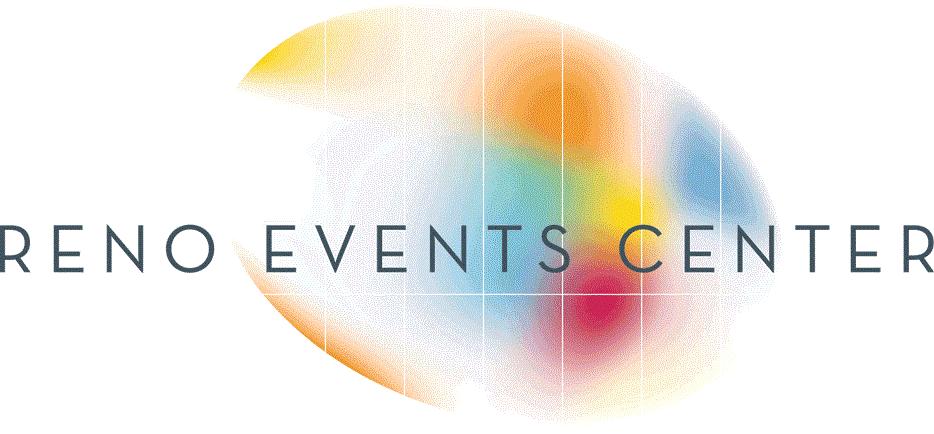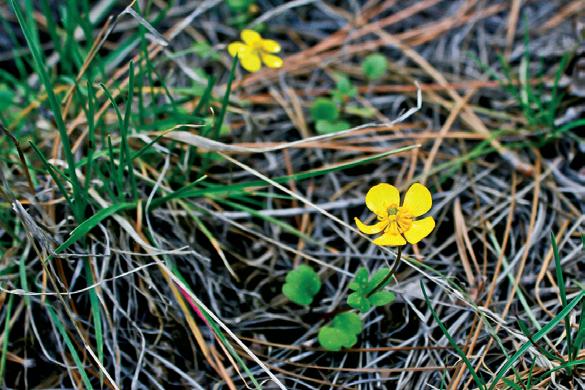
3 minute read
Green
from April 21, 2016
TICKETS AVAILABLE AT BOX OFFICE OR

Advertisement

PHOTO/KELSEY FITZGERALD
Participants in the 2016 Tahoe Wildflower Big Year can submit wildflower observations using the iNaturalist app, or via a desktop computer.
Full bloom
Wildflower count organized for Tahoe
Ample winter moisture brought a “superbloom” to Death Valley this spring, and may make for a great wildflower year across much of the Sierra Nevada as by well. The Tahoe Institute for Natural Science is counting on it—or, rather, Kelsey will be counting it, with help from local volunteers.
Fitzgerald TINS, a non-profit science education group based in Truckee, California, is organizing a “Tahoe Wildflower Big Year”—a project in which volunteers work together to document as many wildflower species as they can find in the Tahoe region in 2016. Last year, TINS organized a similar Big Year project focused on birds, documenting the presence of more than 240 species. “It was very successful,” said Will Richardson, co-founder and director of applied science at TINS. “The idea is that you pick a geographic boundary, and within a year you try to find as many species within that taxonomic group as you possibly can.” The idea of a “Big Year” competition originated in the United States during the 1930s, after the publication of Roger Tory Peterson’s book A Field Guide to the Birds. In 1939, a traveling businessman named Guy Emerson set the first Big Year record, spotting 497 species of birds in North America. The current American record is held by Neil Hayward of Massachusetts, who saw 749 species in 2013. Although Big Year competitions traditionally take place among birdwatchers, Richardson and the TINS team decided to shift the focus from birds to wildflowers this year.
For more information “We wanted reach out to slightly different groups,” Richardson said. on the Tahoe Wildflower Big Year, visit the Tahoe Institute for “We’ve had four years of drought, and things are finally getting some precipitation this winter. I think we’ll see a really great wildflower year.”
Natural Science web- To document flowers, volunteers will use iNaturalist, a citizen science site: www.tinsweb.org/ website and mobile app that allows participants to record plant and wildlife education-outreach/ observations with locations and photographs. Other members of the tahoe-wildflowerbig-year iNaturalist community will double-check the records to ensure accuracy and quality of the observations, then data will be available online for use TINS will be at Reno Earth Day on April 24, and will present a free by researchers around the world. Education will be a large component of the program. TINS is partnering talk on the outcomes with the California Native Plant Society and local plant nurseries to host of 2015’s Tahoe lectures and lead organized hikes throughout the season. “We’re going to Birding Big Year for the Lahontan Audubon Society in Reno on have a ton of opportunities for people to get out and take part in this, so I hope that folks from Reno will come up,” Richardson said. April 26. In the end, the team hopes that the effort will produce a body of valuable data on wildflower presence in the Tahoe Basin—maybe even locating a species that hasn’t been seen before, or a species that hasn’t been seen in a long time. “One thing we’re trying to do this year is de-emphasize the individual competition and put more emphasis on the collective effort,” Richardson said. “How many species can we, as a group, manage to document? One of the things we want to do is try to find some rare plants that maybe haven’t been seen at certain locations, in many cases as long as 90 or 100 years.” Ω










